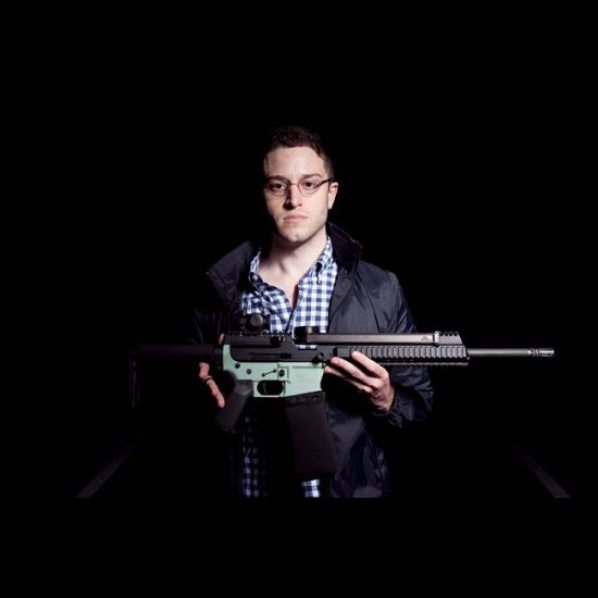In a seismic decision from the U.S. Department of Defense (DOD) and U.S. Department of State (DOS), Cody Wilson’s open-source 3D printed firearm file sharing site Defense Distributed is no longer banned from distributing 3D models of guns.
In the legal battle it was deemed that the ban was in breach of the First Amendment – imposing censorship on a gun maker’s rights to expression. It was also decided on the basis that certain types of guns are not “inherently military” and, seemingly, present less of a threat to the population.
As a result, the homepage of Wilson’s site has now been replaced with the following message:

The right to bear arms
The case made in this lawsuit is in opposition to changes made to the U.S. Munitions List under the Obama administration. At the time, computer files for 3D printed firearms were added to the list, meaning that makers of the files, i.e. Defense Distributed, would have to obtain a permit from the International Traffic in Arms Regulations (ITAR) to allow their distribution, costing in excess of $2,250 per year.
Defense Distributed however is a nonprofit organization, and it’s sole existence is based on its open-source nature, not to mention the fact that the files are not themselves physical 3D printed guns. So Wilson took an objection this, and made a motion to sue the U.S. government, with the support of gun rights non-profit the Second Amendment Foundation (SAF).
What does this mean for 3D printers?
Now, with reforms to ITAR regulations, certain guns are no longer on the U.S. Munitions List, and will instead be controlled by the U.S. Department of Commerce.
For Wilson, this means that Defense Distributed can freely publish 3D files of guns under a .50 caliber threshold, i.e. the infamous Plastic Liberator handgun and semi-automatic guns like the AR-15.
Automatic firearms, guns with silencers, and those that have magazines of 50 rounds however are still regulated by ITAR permits.

Alan M. Gottlieb, founder and Executive Vice President of SAF, stated in the case’s official press release:
“Not only is this a First Amendment victory for free speech, it also is a devastating blow to the gun prohibition lobby,”
“For years, anti-gunners have contended that modern semi-automatic sport-utility rifles are so-called ‘weapons of war,’ and with this settlement, the government has acknowledged they are nothing of the sort.”
Senvol joins NAC
In other news, Senvol, the largest online database of additive manufacturing machines and materials, has joined the National Armaments Consortium (NAC). As part of NAC, Senvol will now play a role in the “rapid innovation” of U.S. military equipment.
Zach Simkin, president of Senvol, commented, “We’re pleased to join the National Armaments Consortium and look forward to contributing to the advancement of armament technologies in the United States.”
For all the last 3D printing news subscribe to the 3D Printing Industry newsletter. Also, follow us on Twitter, and like us on Facebook.
Search and post 3D Printing Jobs for opportunities and new talent across engineering, marketing, sales and more.
Featured image shows Cody Wilson with his infamous “Plastic Liberator” 3D printed gun.



